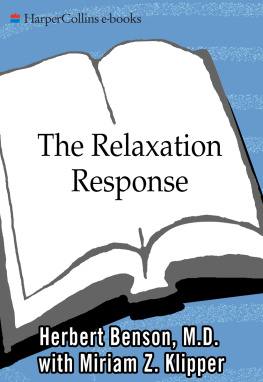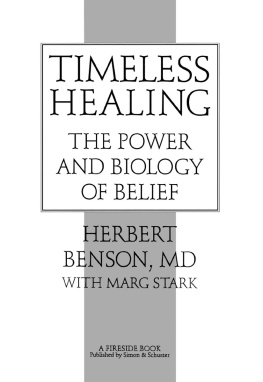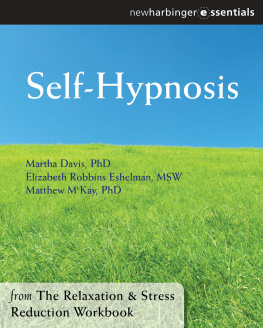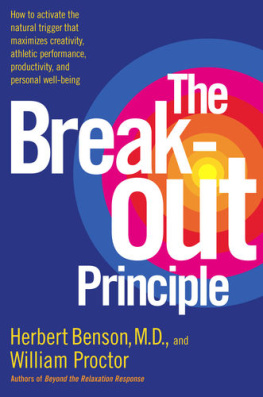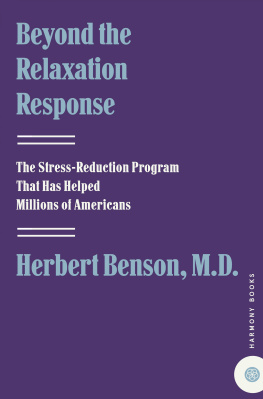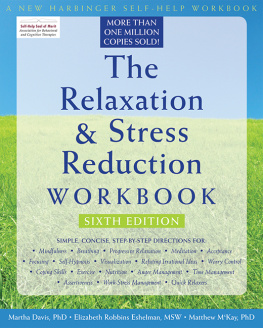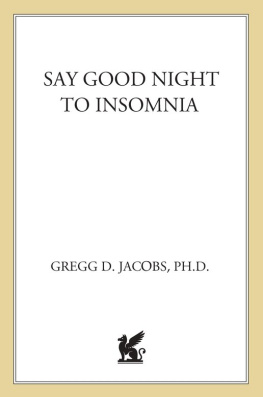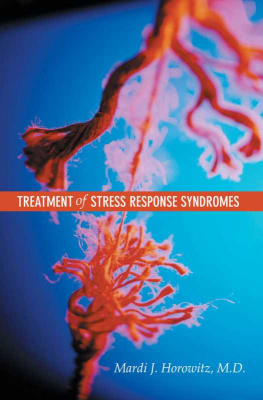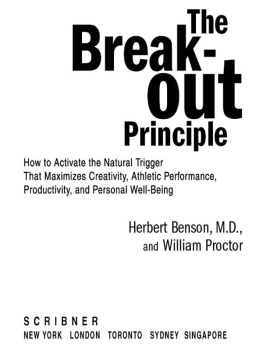by Herbert Benson, M.D. with Miriam Z. Klipper
Twenty-fifth Anniversary Update
When The Relaxation Response was first published in 1975, the Vietnam War and the cultural upheaval that accompanied it loomed large. Only two years earlier, the Supreme Court had established a womans right to a legal abortion in its controversial Roe v. Wade decision. AIDS would not be discovered for six more years. The precursor of in vitro fertilization, the first test-tube baby had yet to be born. Two Californians were working in their garage to build the Apple, the first mass-produced computer. Fax machines and cell phones were a gleam in their inventors eyes.
Indeed, the world today is dramatically different from the world that was first introduced to the connections of mind and body detailed in The Relaxation Response . Three decades ago it was considered scientific heresy for a Harvard physician and researcher to hypothesize that stress contributed to health problems and to publish studies showing that mental focusing techniques were good for the body. I broke ranks with the medical establishment when I decided to pursue this theory and to prove or disprove it in my medical research.
Today we, as a society, take for granted the multifaceted and intimate relationship between mind and body. Scientists now avidly pursue ties between brain activity and physical manifestations. Millions of Americans now elicit the Relaxation Response regularly, as Yoga classes swell, athletes report being in the Zone, and people set up quiet places in their homes to meditate or pray.
Despite the advances that have been made, this twenty-fifth anniversary update of The Relaxation Response is sorely needed. Mind/body science has made enormous progress but has yet to be incorporated as an equal, fully respected partner in Western medical disciplines. As many times as science has affirmed the original message of the book over the past two-and-a-half decades, medicine and society have yet to take full advantage of the healing resources within the mind/body realm.
So much has changed: our economy is becoming more globalized, and barriers between countries are being pulled down. But we have yet to witness a corollary paradigm shift in medicine. Today, our appetites have been whetted with quick fixes, so much so that our quest for diagnostic gadgets and miracle drugs has almost overcome common sense. We expect that surgical acumen will be enough to save us and if not, the next remarkable scientific discovery will. Although mind/body therapies have been proven effective for the vast majority of everyday medical problems, we are still far more apt to run to our medicine cabinet to relieve aches and pains than to consider relaxation or stress-management techniques.
Evolution has yielded us a human body that is astonishingly reliable, able to perpetuate breath and thought, movement and experience, day after day, year after year. By and large, our bodies function even when we bombard them with stress and fatty food, even when we neglect to exercise or to get a good nights sleep. Clearly, we are blessed with an incredible internal technology.
Sadly though, we still rely far more than we should on external fixeson medications and medical and surgical procedures developed in laboratoriesand not on our natural potential for self-healing. Therapies we can purchase and caregivers we can consult, whether available through conventional or unconventional medicine, are still far more impressive to us than our own hearts and minds, lungs and hopes, muscles and beliefs, even though they sustain us day in and day out.
The Three-Legged Stool
Seeing that we continue to neglect our potential for self-healing is a source of both frustration and motivation for me. My goal has always been to promote a healthy balance between self-care approaches and more traditional approachesmedical and surgical interventions that can be magnificent and lifesaving when appropriate. However, self-care is immensely powerful in its own right. The elicitation of the Relaxation Response, stress management, regular exercise, good nutrition, and the power of belief all have a tremendous role to play in our healing.
I envision a future in which medicine is as sturdy as a three-legged stool, balanced equally by three healing resourcesmedications, surgery and other medical procedures, and self-care approaches. Ideally, medicine would call upon self-care for 60 to 90 percent of the everyday problems that patients experience. We would draw appropriately upon the medicines and surgeries when necessary. All three legs are mandatory.
With this future in mind, let me update you on the headway that has been made in the last twenty-five years. With a bit of history, youll see how The Relaxation Response came about and what the books findings meant to mind/body research and to the millions of people who evoke the response. You will also see how much more we must do to ensure that healing in the twenty-first century is as complete as possible.
From the Beginning
Thirty-five years ago, when I was a young cardiologist, I noticed a trend among my patients with high blood pressure, or hypertension, a silent and dangerous precursor of heart disease. Once I prescribed medications, I noticed they often complained about fainting or becoming dizzy. These were side effects of having their blood pressures lowered with medications. Patients went from feeling fine to being burdened with irritating and disabling side effects, all the result of medicine I had prescribed.
This troubled me. It appeared that by following the standard treatment approach, I was overmedicating patientsunleashing on otherwise symptomless people maddening side effects from medications that they would be required to take the rest of their lives. I soon learned that my patients were not unique. These complaints were common among people being treated for hypertension.
It was widely known that, when measured in a doctors office, a patients blood pressure was often higher than when it was measured by the patient himself or herself at home or in other settings. Yet the medical literature failed to explain this discrepancy sufficiently, and none of my colleagues seemed that bothered by it.
I speculated that patients exhibited falsely high levels in doctors offices because they were nervous, and that there might be a relationship between stress and high blood pressure. Though it seems unmistakable to us today, with the clue of the word tension embedded in hypertension , no one in medicine had yet explored the correlation between stress and elevations in blood pressure even though high blood pressure was a primary contributor to the nations leading cause of death.
Mind Divorced From Body
My colleagues thought I was bizarre for suggesting such a thing because we had been taught that the mind and the body were inexorably separate, as had been postulated by Ren Descartes, the seventeenth-century mathematician. Following Cartesian thinking, Western science never questioned this model. Except in a relatively unaccepted field of study called psychosomatic medicine, Western science had not, in the 1960s, begun to entertain the possibility that physical problems might be rooted in mental or emotional activity, or that stress as a phenomenon could engender demonstrable medical repercussions.

